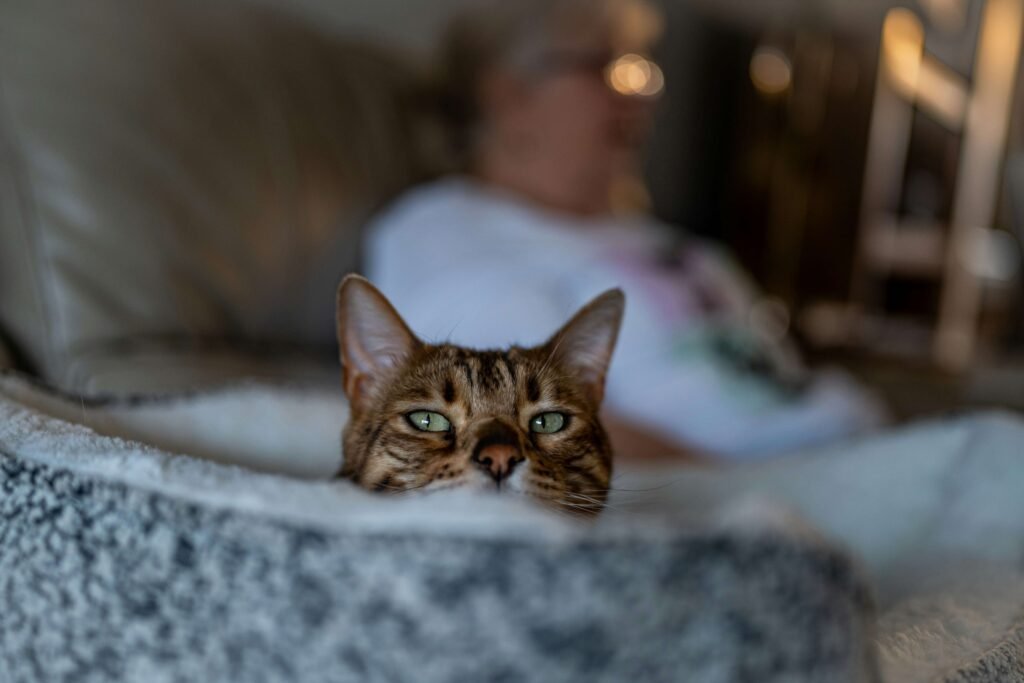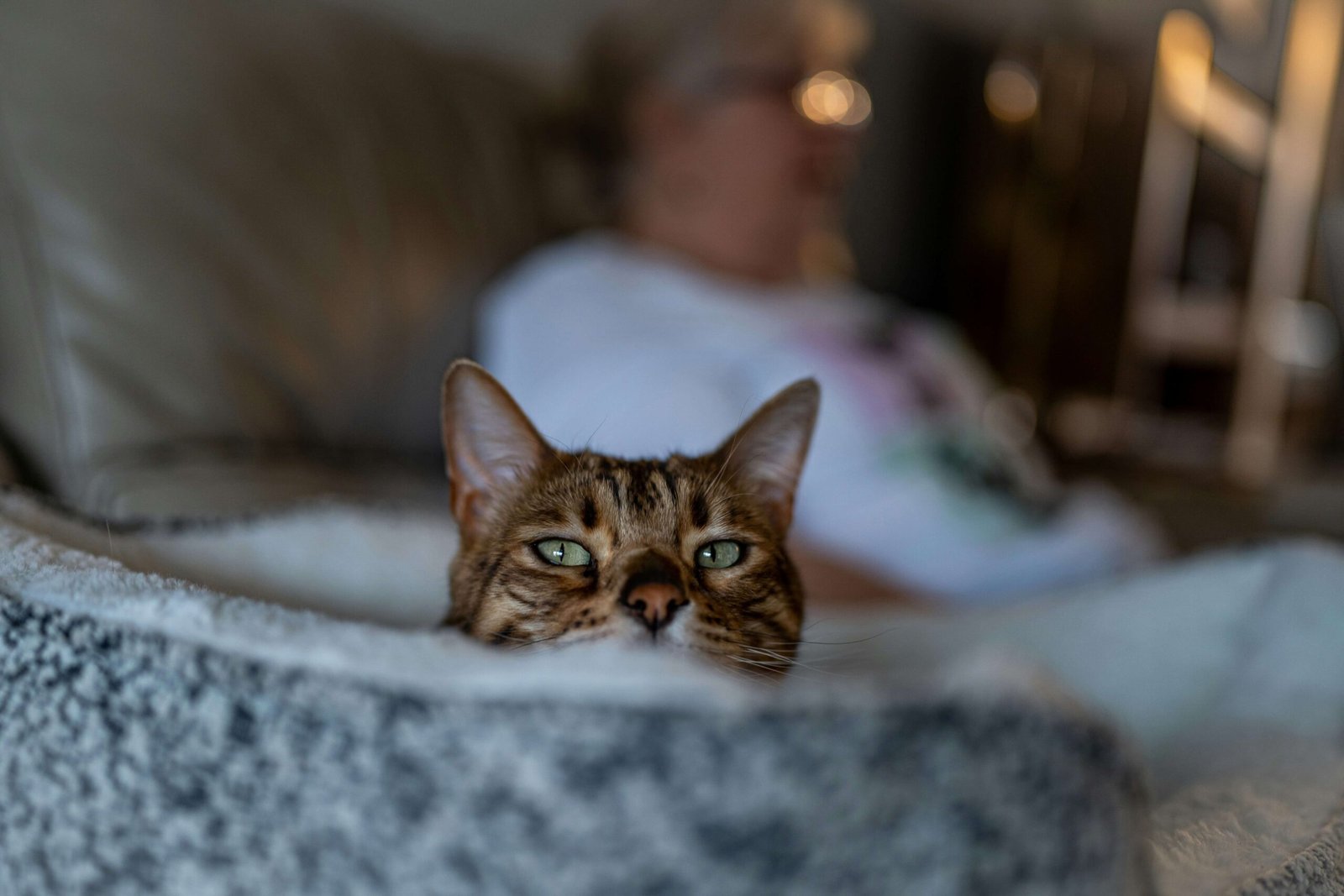Understanding Rodent Ulcers in Cats: A Closer Look at Feline Health
If you’ve noticed an unusual sore or lesion on your cat’s bottom lip, it could be a rodent ulcer. Despite its misleading name, this condition has nothing to do with rodents. Instead, it’s a type of skin inflammation that affects cats, often causing discomfort and concern for pet owners. In this blog post, we’ll explore what rodent ulcers are, their potential causes, symptoms, and treatment options. Whether you’re a seasoned cat parent or new to feline care, this guide will help you better understand this condition and how to support your furry friend.
What Are Rodent Ulcers? Breaking Down the Basics
Rodent ulcers, also known as eosinophilic granulomas, are a common yet misunderstood condition in cats. These lesions typically appear on the lips, but they can also develop on other parts of the body. Here’s what you need to know about them:
Rodent ulcers are not caused by rodents or infections but are linked to an overactive immune response.
They often manifest as raised, pinkish or yellowish sores that may look raw or irritated.
The bottom lip is the most common location, though they can also occur on the upper lip or even inside the mouth.
These ulcers are usually painless, but they can cause discomfort if left untreated.
They are more prevalent in younger cats, though older cats can also develop them.
Understanding these basics is the first step toward identifying and addressing rodent ulcers in your cat. Early detection can make all the difference in ensuring your pet’s health and comfort.
Causes of Rodent Ulcers: Uncovering the Triggers
While the exact cause of rodent ulcers remains unclear, several factors are believed to contribute to their development. Here’s a breakdown of the potential triggers:
Allergies, particularly food allergies or environmental allergens like pollen, can play a significant role.
Parasites such as fleas or mites may trigger an immune response that leads to these ulcers.
Stress or anxiety in cats can weaken their immune system, making them more susceptible to conditions like rodent ulcers.
Genetic predisposition might make some cats more prone to developing eosinophilic granulomas.
Bacterial or fungal infections, although rare, can sometimes exacerbate the condition.
By understanding these potential causes, you can take proactive steps to minimize risks and create a healthier environment for your cat. Remember, prevention is always better than cure.
Check this guide 👉Why Do Cats Lick Their Lips? Best 7 Expert Care Tips!

Preventive Measures | Treatment Options |
|---|---|
Regular flea and parasite control | Topical corticosteroid creams |
Providing a balanced, hypoallergenic diet | Oral medications like antibiotics |
Reducing stress through enrichment activities | Anti-inflammatory drugs |
Keeping your cat indoors to avoid allergens | Laser therapy for persistent cases |
Routine veterinary check-ups | Surgical removal in severe cases |
Symptoms to Watch For: Recognizing Rodent Ulcers Early
Identifying a rodent ulcer early can significantly improve your cat’s prognosis. Here are some key symptoms to look out for:
Raised, shiny patches on the lips or mouth area.
Swelling or thickening of the affected area.
Loss of fur around the lesion.
Excessive licking or grooming of the lips.
Changes in eating habits, such as reluctance to eat or drooling.
Early recognition of these signs allows you to seek veterinary care promptly, ensuring your cat receives the necessary treatment without delay. Always trust your instincts—if something seems off, consult your vet.
Treatment and Care: Supporting Your Cat’s Recovery
Once diagnosed, treating a rodent ulcer involves a combination of medical intervention and supportive care. Below are some strategies to aid your cat’s recovery:
Administer prescribed medications as directed by your veterinarian.
Monitor your cat’s diet and eliminate potential allergens.
Maintain good oral hygiene by gently cleaning around the affected area.
Provide a calm and stress-free environment to boost healing.
Schedule follow-up visits with your vet to track progress.
With proper care and attention, most cats recover fully from rodent ulcers. Patience and consistency are key during this process.
Home Remedies for Mild Cases
While veterinary care is essential for treating rodent ulcers, some mild cases may benefit from supportive home remedies. These should only be used under the guidance of your vet. Here are a few options to consider:
Applying a warm compress can help reduce inflammation and promote healing.
Coconut oil, known for its soothing properties, may be gently dabbed on the affected area.
Aloe vera gel (pet-safe and organic) can provide relief for irritated skin.
Keeping your cat hydrated ensures their overall health supports faster recovery.
Reducing exposure to potential allergens like dust or chemicals can prevent flare-ups.
Always consult your veterinarian before trying any home remedies. While these tips can complement professional treatment, they should never replace it.
Preventing Recurrence of Rodent Ulcers
Once your cat has recovered from a rodent ulcer, taking steps to prevent recurrence is crucial. Here are some strategies to minimize the risk:
Regularly clean your cat’s bedding and toys to reduce allergens and irritants.
Use hypoallergenic grooming products specifically designed for sensitive cats.
Schedule routine vet visits to monitor your cat’s overall health and immune system.
Keep your home free of fleas and other parasites with preventive treatments.
Avoid sudden changes in your cat’s diet or environment to maintain stability.
By implementing these measures, you can significantly lower the chances of your cat developing another rodent ulcer. Prevention is always easier than treating a recurring issue.
Emotional Support for Your Cat
Rodent ulcers can cause stress and discomfort for your cat, making emotional support an important part of their recovery. Here are ways to comfort your feline friend during this time:
Spend extra time petting or cuddling your cat to reassure them.
Provide interactive toys to distract them from licking or chewing the sore.
Create a quiet and cozy space where your cat can rest undisturbed.
Use calming pheromone diffusers to reduce anxiety in your home.
Stick to a predictable routine to give your cat a sense of security.
Emotional well-being plays a vital role in physical healing. By offering love and reassurance, you’ll help your cat feel safe and supported throughout their recovery journey.
Frequently Asked Questions About Rodent Ulcers in Cats
Are rodent ulcers contagious to other pets or humans?
No, rodent ulcers are not contagious. They are caused by an immune response specific to the affected cat.
Can diet influence the development of rodent ulcers?
Yes, certain foods may trigger allergic reactions that lead to rodent ulcers. Switching to a hypoallergenic diet can help.
How long does it take for a rodent ulcer to heal?
Healing time varies depending on the severity and treatment plan, but most cases resolve within a few weeks to months.
Is surgery necessary for treating rodent ulcers?
Surgery is rarely required and is typically reserved for severe or recurring cases that don’t respond to medication.
Can rodent ulcers recur after treatment?
Yes, some cats may experience recurrences, especially if underlying triggers like allergies or stress aren’t addressed.
Final Thoughts: Empowering You to Care for Your Cat
Rodent ulcers may sound alarming, but they are manageable with the right knowledge and approach. By staying vigilant about your cat’s health, recognizing symptoms early, and working closely with your veterinarian, you can ensure your feline companion enjoys a happy, healthy life. Remember, your cat relies on you to advocate for their well-being—so don’t hesitate to seek professional advice whenever needed. Together, we can demystify conditions like rodent ulcers and provide the best possible care for our beloved pets.
Dog Tapeworm Life Cycle: Best 7 Expert Tips! – Learn how tapeworms infect dogs, spot symptoms, and break the cycle with expert prevention strategies.
Anxious Cat Body Language: Best 7 Expert Tips! – Learn to spot signs of stress, understand triggers, and help your cat feel safe and relaxed.
Anxious Dog Body Language: Best 7 Expert Tips! – Learn to spot signs of anxiety, respond effectively, and help your dog feel safe and secure.
Is Breeding Dogs Bad? Best 7 Expert Tips! – Explore the ethics, benefits, and risks of dog breeding to make informed decisions for a better future.





